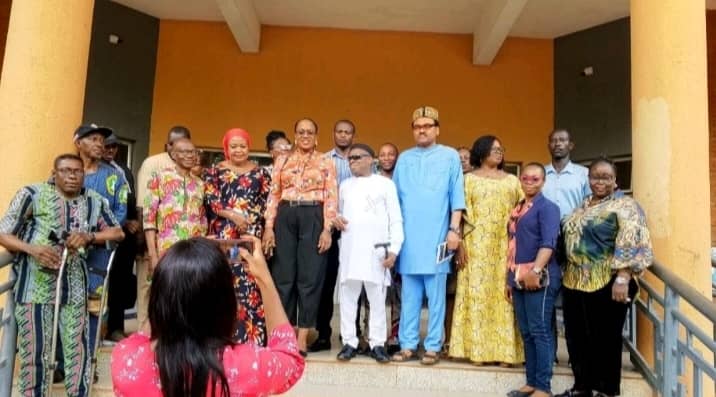In a concerted effort to enhance efficient and productive resource utilization for transformative development, Anambra State Commissioner for Budget and Economic Planning, Mrs. Chiamaka Nnake, emphasized the necessity of prudent allocation and strategic prioritization of projects to maximize economic benefits. She made these remarks during the inauguration of the 2024 Budget Committee members at the Ministry of Budget and Economic Planning’s Conference Hall, Jerome Udoji Secretariat, Awka.
Mrs. Nnake called for bilateral discussions involving the Ministry, Civil Society Organizations (CSOs), and various Ministries, Departments, and Agencies (MDAs) to formulate a credible and realistic budget. These ongoing discussions aim to streamline budgetary activities, ensuring each MDA operates within its allocated budget and prioritizes initiatives based on community needs.
The Commissioner noted that the state’s recurrent revenue, particularly its Internally Generated Revenue (IGR), is not growing at the desired pace. Therefore, MDAs must carefully prioritize their initiatives. She underscored the importance of integrating the Community Charter of Demand (CCD) into MDAs’ plans to ensure meaningful community participation in the budgeting process.
“Prioritizing key programmes is crucial, given that the budget is structured around specific initiatives. Local government matters, such as road maintenance, should be managed by local authorities. The Works Department must account for this distinction when planning its budget to ensure effective resource allocation and proper assignment of responsibilities,” she stated.
Mr. Chris Azor, Chairman of the Anambra Civil Society Organisation (CSO), expressed appreciation for the bilateral discussions and underscored the need for their continuation, noting the implementation of a participatory budget. “The benefit is that we are bringing the budget to the citizens. It is now the citizens’ budget, and many civil society groups, including the Women’s Society and organizations representing people with disabilities, are actively participating. This is what the budget should be about—it reflects the needs and priorities of the people,” he said.
He further added, “Today, we are implementing a participatory budget, the people’s budget. Whatever the people want is included, and the government prioritizes based on their input. This approach fosters transparency and accountability, creating a positive trickle-down effect that benefits everyone.”
A representative of people living with disabilities, Mr. Okoye, voiced strong support for the Commissioner’s prioritization approach, especially in light of the government’s decision not to procure loans. He noted that focusing on critical projects would lead to more impactful budget allocations.
“The budget’s performance over the past two quarters demonstrates the government’s commitment to developing essential infrastructure aimed at accelerating the state’s socio-economic growth and ensuring resources are effectively allocated to initiatives that enhance citizens’ quality of life,” he stated.

